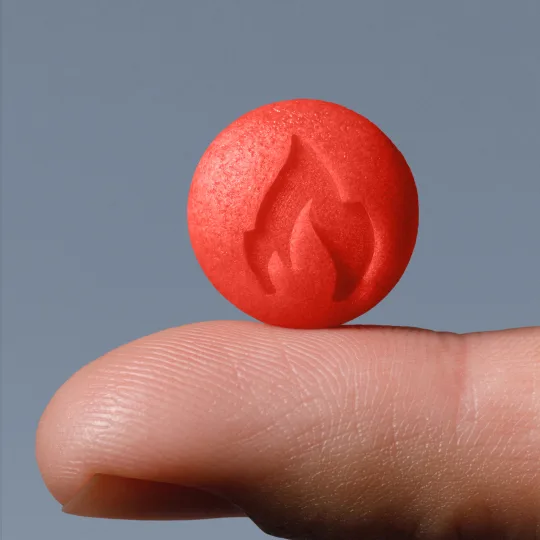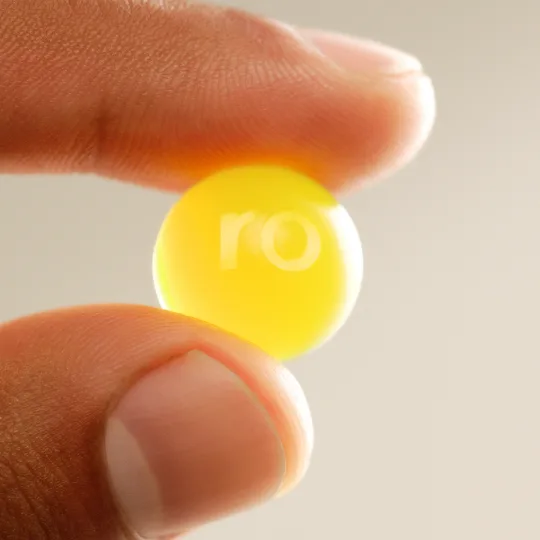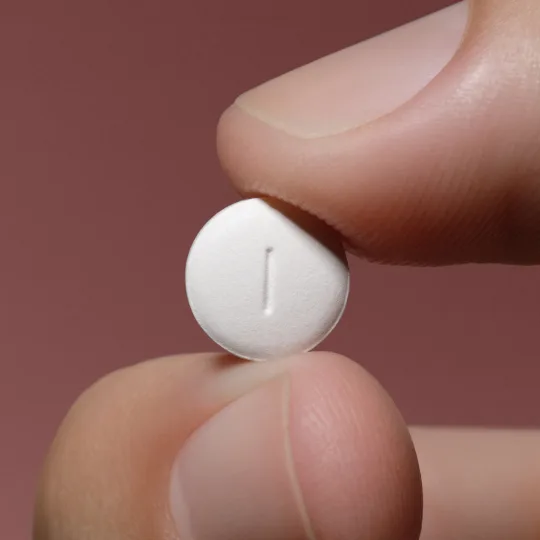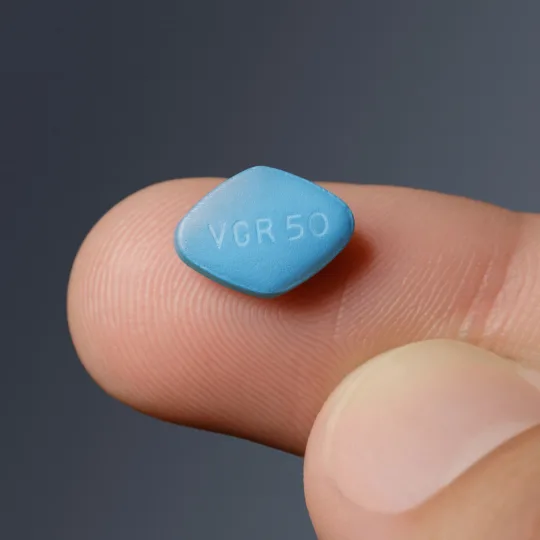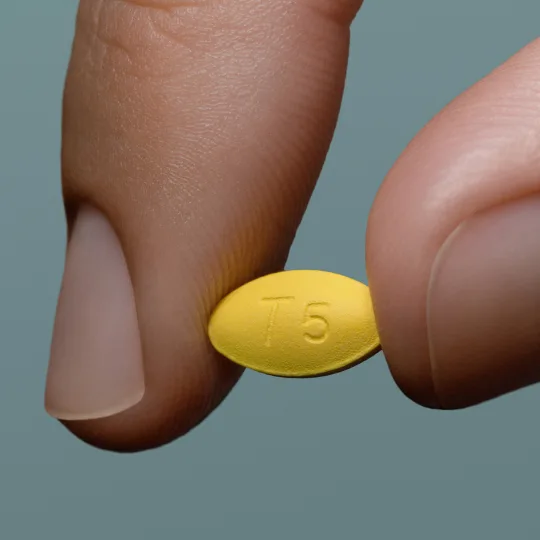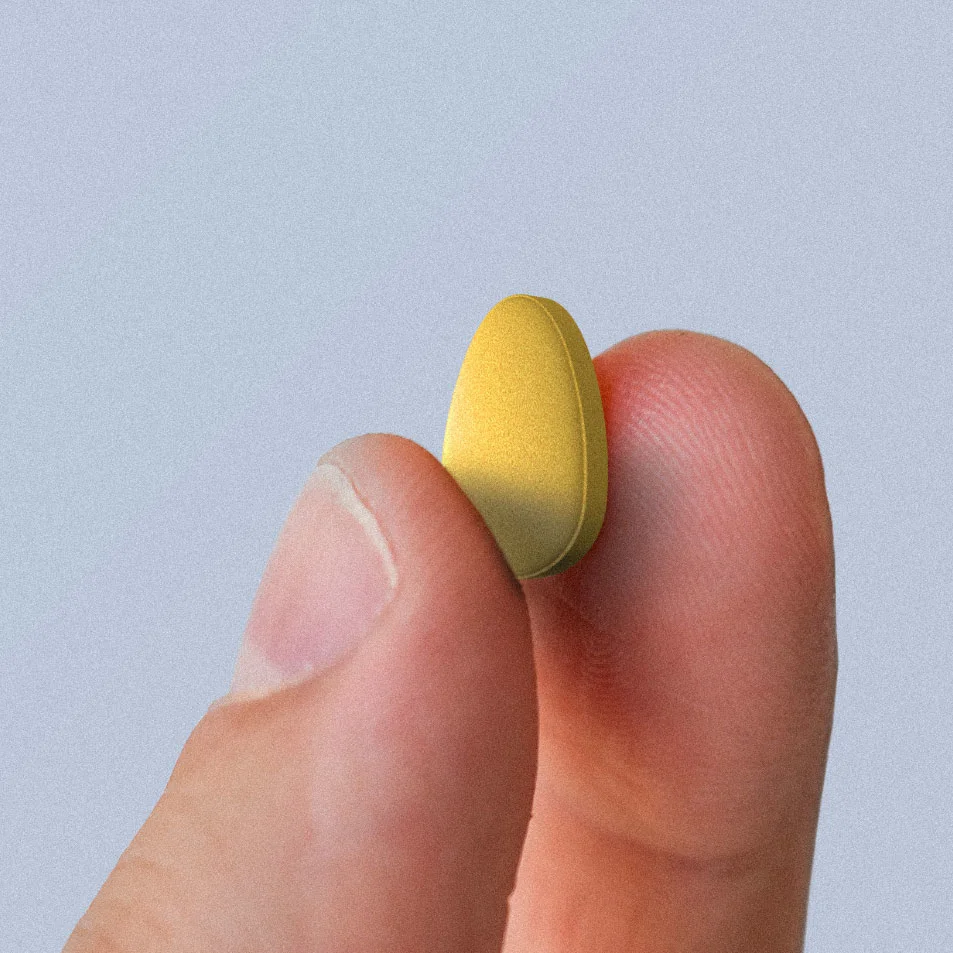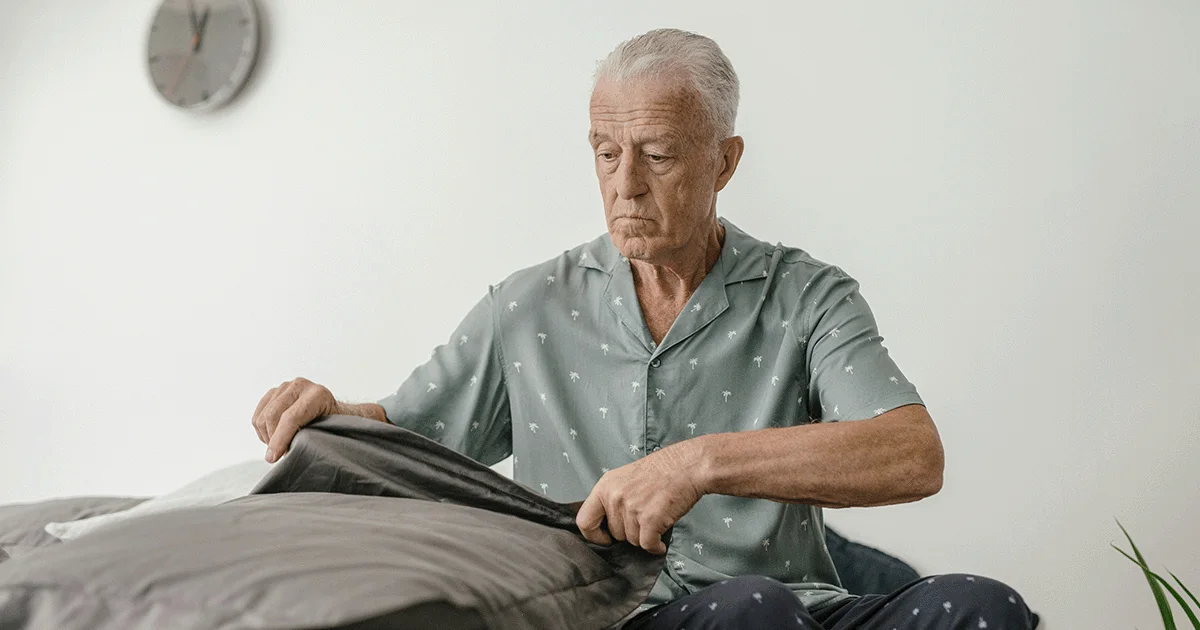Key takeaways
Home remedies for erectile dysfunction (ED) are considered non-medical “treatments,” such as diet, exercise, and over-the-counter herbal supplements.
Natural remedies like lifestyle changes may be helpful in ED prevention or improving symptoms in some cases of ED, but most natural remedies have little (or no) scientific backing.
If you have ED, better treatment options include medications like Viagra or Cialis, amongst other options with better proof of efficacy.
Here's what we'll cover
Here's what we'll cover
Here's what we'll cover
Key takeaways
Home remedies for erectile dysfunction (ED) are considered non-medical “treatments,” such as diet, exercise, and over-the-counter herbal supplements.
Natural remedies like lifestyle changes may be helpful in ED prevention or improving symptoms in some cases of ED, but most natural remedies have little (or no) scientific backing.
If you have ED, better treatment options include medications like Viagra or Cialis, amongst other options with better proof of efficacy.
If you’re experiencing erectile dysfunction (ED), you might be wondering if there’s a “natural” way to treat it. While some so-called home remedies for ED, like diet and exercise, may benefit your sexual (and overall) health, others could be unsafe.
Here, we break down 16 natural remedies for ED, if they actually work, and what other treatment options for ED are out there.
1. L-arginine
L-arginine is an amino acid your body uses to make nitric oxide, which is the chemical that relaxes blood vessels in the penis and boosts blood flow (a necessary part of an erection).
According to some research, it seems L-arginine supplements might improve mild-to-moderate ED symptoms, orgasms, and overall sexual satisfaction. L-arginine is sometimes combined with L-citrulline in supplements because both amino acids are involved in similar pathways and combining them may help with blood flow and could benefit ED.
While the research is promising, it’s limited. Results vary based on the cause of ED. Further research is needed, so for now, there’s no definitive evidence L-arginine is the ED cure-all you might be hoping for.
2. Folic acid
Folic acid is a B-vitamin that helps the body make and use nitric oxide, which is key for healthy blood flow and erections.
A 2021 meta-analysis found that men with more severe ED had lower folic acid levels, and other research suggests folic acid deficiency may be a risk factor for ED. Early studies show that supplementing with folic acid had positive effects on erectile function in people with ED.
The evidence is promising, especially in people with low folate or metabolic issues, but we don’t have enough data yet to say folic acid can treat ED. More research is needed.
3. Horny goat weed
Horny goat weed is a popular herbal supplement and a common ingredient in male enhancement products. The United States Food and Drug Administration (FDA) recommends against using these male enhancement products as they may contain undisclosed or harmful ingredients .
It’s possible horny goat weed could help with ED because of a compound it contains called icariin. Studies have found icariin has a similar type of effect (though to a lesser degree) as PDE5 inhibitors, the class of medications FDA-approved to treat ED (like Viagra). Though animal studies indicate horny goat weed could be helpful for ED, the research doesn’t go much further than goats.
4. DHEA
DHEA (dehydroepiandrosterone) is a precursor hormone your body uses to make sex hormones like testosterone and estrogen. Low DHEA levels have been linked to a higher risk of ED in men, but it’s not clear exactly how DHEA affects sexual function.
When it comes to supplements, the evidence is mixed. Some studies suggest DHEA may help certain people — especially those with hormonal deficiencies or stress-related sexual issues — but results are inconsistent, and it’s not considered a go-to ED treatment.
Bottom line: If you suspect low DHEA or low testosterone may be causing ED, speak to a healthcare provider who can test your levels and recommend an appropriate course of treatment if needed.
5. Ashwagandha
Ashwagandha is a shrub native to Asia and Africa that’s commonly sold as a dietary supplement for anxiety and sleep.
It also appears to have minor testosterone-boosting effects in some men. A small 2022 study suggests ashwagandha may increase testosterone levels in those with low sexual desire. And a 2025 study of 100 healthy men showed improved orgasmic function, sexual desire, and overall sexual satisfaction after taking ashwagandha root extract for eight weeks.
While some of the evidence for ashwagandha is promising, we don’t have enough high-quality trials yet to say it works as a standalone ED treatment.
6. Fenugreek
Multiple studies have shown fenugreek supplementation could offer a modest benefit for those with low testosterone levels. So for people experiencing erectile dysfunction due to low T, fenugreek could provide some benefit.
Fenugreek also has some benefits for overall heart and metabolic health. It’s been shown to support heart health and it even has cholesterol-lowering effects. High cholesterol can contribute to damaged blood vessels over time, which is a risk factor for ED since it decreases blood flow. So, it’s safe to say fenugreek may help maintain erectile function over time.
Bottom line: Fenugreek isn’t an herbal Viagra, but it may be useful for men with low testosterone or metabolic risk factors. More research is needed. For now, don’t count on fenugreek to replace any standard ED treatments.
7. Propionyl-L-carnitine
Propionyl-L-carnitine (PLC) is a naturally occurring molecule that helps with blood flow and oxidative stress. On its own, the evidence for ED is pretty limited — but PLC looks more promising when paired with ED meds.
A 2024 analysis found that people taking PLC in combination with sildenafil (the active ingredient in Viagra) saw more improvement in ED symptoms than placebo. Earlier trials also suggest antioxidants like PLC can make PDE5 inhibitors work better for some men.
There’s also some data on supplement blends. In a small study, men with ED took a supplement containing PLC, L-arginine, and niacin over a three-month period. Researchers found that 40% of participants experienced improved erections, and nearly 80% experienced at least a partial improvement. Keep in mind that this study was very small and did not include a placebo group.
Bottom line: PLC may not help with ED much on its own, but it could help ED meds work better. More research is needed.
8. Ginseng
Ginseng is suggested to offer minor benefits for ED and works partly by boosting nitric oxide production. As we’ve seen already, nitric oxide plays an important role in erections by relaxing muscles in the penis and encouraging blood flow. Active compounds in ginseng called ginsenosides also help relax penile blood vessels and improve blood flow.
Ginseng has been used in traditional Chinese medicine for stamina, fatigue, and sexual function for centuries. That being said, the evidence is mixed.
Older research indicates that ginseng berry extract may improve sexual function in men with ED, but more recent studies found ginseng to have trivial effects on sexual satisfaction or erectile function.
Point being: ginseng may help a little, but the data isn’t strong, and better human studies are needed.
9. Vitamin D
Research suggests vitamin D can reduce inflammation and promote nitric oxide production. Together, these can improve blood flow, which is important for sexual performance.
If you’re deficient in vitamin D, supplementing with this vitamin may improve your symptoms. However, research shows mixed results, with some trials showing a benefit of adding vitamin D on ED symptoms while others don’t.
Further research is needed to better understand the relationship between vitamin D deficiency, supplementation, and ED. That being said, if you are truly deficient in Vitamin D, supplementation is beneficial for your overall health. And since results are individualized, you can see whether supplementation helps your ED symptoms over time.
10. Yohimbine
Yohimbine (aka yohimbe) is a natural chemical found in the bark of the African yohimbe tree. It can affect both sexual arousal and erection pathways in the body, which makes it a subject of interest for ED treatment.
Human studies so far suggest yohimbine may offer a modest benefit, especially for psychological ED, but that doesn’t mean it’s totally safe.
Available research suggests yohimbine is not beneficial for physical ED symptoms.
Animal research suggests combining yohimbine with other natural ED remedies, like L-arginine, can have positive impacts on erectile dysfunction, though combinations aren’t as well studied in humans.
While yohimbine can work better than placebo in some men, it also comes with risks like elevated blood pressure, fast heart rate, and anxiety. Bottom line: Be careful about taking supplements, and always discuss any potential supplements you take with your healthcare provider before adding them to your routine.
11. Eat a healthy, balanced diet
Diet is important for healthy sexual function, and eating nutritious foods, like those that make up a Mediterranean diet, can lower your risk of ED.
You might be skeptical that your diet can “fix your problems,” but when it comes to ED and diet, it’s your overall health that can affect erections. Because some health conditions that affect blood flow, like high blood pressure, are linked to ED, eating heart-healthy foods may support erectile function.
Justin Houman, MD, a urological surgeon and assistant professor of Urology at Cedars-Sinai Medical Center recommends a diet focused on:
Complex carbohydrates like whole-grain bread
Healthy fats, like nuts and avocado
Lean proteins like turkey and chicken
12. Exercise regularly
Research shows that regular exercise can:
Encourage better blood flow
Enhance the effects of prescription ED medications
Increase testosterone, which plays an important role in erectile function. Testosterone improves sexual function in many ways, including maintaining blood vessel health, which supports healthy blood flow to the penis over time.
Aim for at least 150 minutes of moderate exercise (e.g. walking, running, cycling) per week, and try to incorporate strength training at least twice a week to maintain muscle mass.
13. Maintain a healthy weight
If you have obesity or overweight, weight loss can improve numerous parameters of health including your circulation and, therefore, bring better blood flow to the penis. Keeping a healthy weight can also reduce the risk of heart disease and diabetes, two conditions linked to a higher risk of ED as well. One study noted that weight loss programs can significantly improve erectile function and reduce ED symptoms in about 3–6 months.
Research shows that weight loss can help improve erections in those with overweight or obesity and could be a useful secondary tool (meaning, in addition to other primary treatments, such as Rx medication) for treating ED.
14. Get ample sleep
Dr. Houman recommends having a regular bedtime and wake time and aiming for 7-8 hours of sleep each night. Sleep is important for achieving and maintaining healthy erections because it can impact testosterone production, he adds.
While more research is needed, a meta-analysis of 18 studies showed that sleep deprivation for over 24 hours reduces testosterone levels. Furthermore, maintaining a healthy duration of sleep on a regular basis is key to maintaining healthy testosterone levels.
15. Reduce stress
ED doesn’t always have a physical cause like high blood pressure or low T. Psychological factors like stress, anxiety, depression, and low self-esteem can also contribute to the condition. Everyone manages stress in different ways, but here are some tactics you can try on your own or in addition to other mental health treatments:
Going for a walk
Deep breathing
Meditating
Getting a massage
Working with a sex therapist or mental health professional
Stress can interrupt communication from the brain to the penis and increase cortisol levels. Stress management programs can help decrease these levels. While the relationship between cortisol and erections is still controversial, chronically elevated cortisol levels are thought to be harmful for erectile function.
16. Quit smoking and limit alcohol use
Smoking damages blood vessels in the penis, and reduces healthy blood flow, according to Nannan Thirumavalavan, MD, a urologist and chief of Male Reproductive and Sexual Health at University Hospitals Cleveland Medical Center. Blood flow throughout your entire body starts improving in about two weeks after quitting smoking.
Drinking alcohol can slow down your central nervous system, slowing down the communication between your brain and penis, which can sometimes cause difficulty getting hard. Some studies show that when you stop excess alcohol use, ED symptoms improve in about three months.
Alternatives to home remedies for ED
As you can see, the research on home remedies for ED is pretty mixed. In cases of mild ED, lifestyle changes like diet and exercise may improve or even reverse it. That being said, many cases, especially more severe ones, may require some of the medical treatments below.
Prescription medications
There are a variety of proven (albeit non-natural) remedies that you could try, including:
Viagra (sildenafil): A PDE5 inhibitor that’s FDA-approved for ED and starts working in about 30 minutes, lasting for up to four to six hours. It works by relaxing blood vessels and increasing blood flow to the penis.
Cialis (tadalafil): Another PDE5 inhibitor that can be taken either daily or as-needed and works for up to 36 hours. It also works by relaxing blood vessels and increasing blood flow to the penis.
Ro Sparks: A sublingual tablet containing both sildenafil and tadalafil (the active ingredients in Viagra and Cialis, respectively).
Daily Rise Gummies: Once-a-day gummies made with tadalafil.
The active ingredients in the latter two options are individually FDA-approved for treating ED, but the compounded formulations themselves are considered off-label because they’re prepared in compounding pharmacies.
Devices and surgery
If lifestyle changes and ED medication aren’t working, don’t worry. You still have options, including:
A penis pump or vacuum erection device. This is a plastic chamber into which you insert your penis. A hand or battery-powered pump then creates suction to increase blood flow to the penis.
Penile implants. These are devices implanted by a surgeon under the skin of the penis that inflate to mimic an erection. This is typically a last resort, as it is an invasive surgery.
When to consult a healthcare provider
“The earlier you address [erectile dysfunction], the better off you will be; I can’t emphasize that enough,” Dr. Houman says.
That’s because how ED is treated really depends on the cause. For example, if you have ED due to low testosterone, taking dietary supplements or prescription PDE5 inhibitors may not be as effective as treating the underlying issue.
Dr. Thirumavalavan adds that beyond treating erectile issues, getting seen for ED is important as ED can sometimes be the first sign of a more serious condition.
“We always call ED the canary in the coal mine — it could be a sign of something bigger,” Dr. Thirumavalavan explains. “I certainly have diagnosed diabetes because someone came to me with ED, so that’s another important reason to get evaluated.”
Are home remedies for ED effective?
No, in general, OTC ED products don’t work, according to Dr. Thirumavalavan. “I don’t recommend them. One, you don’t know what’s in them, and two, there’s really no proof they do anything.”
In a study Dr. Thirumavalavan and other researchers conducted on OTC testosterone boosters (which often claim to enhance sexual performance), there was no definitive evidence that the products worked as advertised.
Are home remedies for ED safe?
It depends.
Some home remedies geared toward lifestyle changes are safe and encouraged, such as:
Getting physical activity
Eating a well-balanced diet
Managing stress
Improving sleep
Taking unregulated ED or male enhancement supplements, on the other hand — not so much. With the lack of larger human studies, there’s no proof these supplements are safe to take, or that they work as promised.
Dietary supplements do not undergo the same rigorous testing as prescription medications. In fact, the FDA has even issued public warnings over the years about tainted sexual enhancement products containing hidden ingredients that may pose serious health risks.
Have better sex with Ro
Bottom line
The bottom line when it comes to home remedies for ED? “What’s good for your heart is good for your erections,” Dr. Houman says.
Here are some things to keep in mind when considering natural remedies for ED:
Managing diet, exercise, stress, and sleep can help with ED prevention and may improve symptoms in some men.
There’s limited evidence that dietary supplements work for ED. They may also contain inaccurate doses of active ingredients and even potentially harmful ingredients.
The best (and safest) way to treat ED is to work with a healthcare provider who can determine the cause and recommend an appropriate course of treatment (which may include prescription medications).
Frequently asked questions (FAQs)
What are home remedies for ED?
There’s not really such a thing as a home remedy for ED — at least not yet. When referring to home or natural remedies for ED, what we’re talking about is anything non-medical that may help with erectile issues, such as dietary supplements.
The best “home remedy,” if you can call it that, is following a healthy lifestyle free of excess alcohol consumption and smoking, while incorporating a balanced diet, minimizing processed food, and participating in regular exercise.
It may be tempting to try the non-medical route on your own; however, it’s important to see a healthcare provider if you’re experiencing symptoms of ED, as safe and effective treatment depends on the cause and can vary among individuals. Plus, ED can be a sign of other health problems, so seeing a healthcare provider could help you catch other health issues early.
What is the fastest way to cure erectile dysfunction?
There’s not really a blanket “cure” or quick fix for ED, but it can be successfully treated or reversed in many men. While longer-term lifestyle changes like following a nutritious diet and maintaining a consistent exercise routine are important, ED medications can be a fast-acting medical route.
Among the fastest options are penile injections, which deliver prescription medications directly to the penis. This method can work within 20 minutes after the injection. For those who prefer pills, Viagra, for example, can take just 30–60 minutes to kick in (and the same is true of Cialis), while Ro Sparks can get you hard within 15 minutes after it dissolves.
ED medication may not work the same for everyone (and it may not even be safe for everyone). Discuss with your healthcare provider to see what treatment options are available for you.
What is naturally good for erectile dysfunction?
Eating a healthy diet (avoiding processed foods and consuming ingredients good for your heart), getting regular exercise and sleep, managing stress, and nixing unhealthy habits like long-term heavy alcohol use and smoking are all naturally good for ED.
What is a good vitamin for erectile dysfunction?
In small studies, L-arginine has shown potential benefits for mild-to-moderate ED and vitamin D supplements have shown potential benefits for ED when there’s a true vitamin D deficiency at play. There’s limited scientific evidence that taking vitamins works for ED, and more research is needed.
What herb is equal to Viagra?
Unfortunately, there is no herbal equivalent to Viagra. Ashwagandha, ginseng, and yohimbine have all been used for centuries as alternative treatments in attempts to improve sexual health before Viagra was developed, but again, there’s not enough scientific evidence to prove alternative methods work for ED.
DISCLAIMER
If you have any medical questions or concerns, please talk to your healthcare provider. The articles on Health Guide are underpinned by peer-reviewed research and information drawn from medical societies and governmental agencies. However, they are not a substitute for professional medical advice, diagnosis, or treatment.
Viagra Important Safety Information: Read more about serious warnings and safety info.
Cialis Important Safety Information: Read more about serious warnings and safety info.
References
Allen, M., Wood, A., & Sheffield, D. (2023). The psychology of erectile dysfunction. Association for Psychological Science, 32(6), 487-193. doi: 10.1177/09637214231192269. Retrieved from https://journals.sagepub.com/doi/full/10.1177/09637214231192269
Balasubramanian, A., Thirumavalavan N., Srivatsav, A., et al. (2019). Testosterone imposters: an analysis of popular online testosterone boosting supplements. The Journal of Sexual Medicine, 16(2), 203-212. doi: 10.1016/j.jsxm.2018.12.008. Retrieved from https://www.sciencedirect.com/science/article/abs/pii/S1743609518313821
Canguven, O. & Al Malki, A. H. (2021). Vitamin D and male erectile function: an updated review. World Journal of Men’s Health, 39(1), 31-37. doi: 10.5534/wjmh.190151. Retrieved from https://pmc.ncbi.nlm.nih.gov/articles/PMC7752519/
Carvalheira, A., Santana, R., & Pereira, N. (2015). Why are men satisfied or dissatisfied with penile implants? a mixed method study on satisfaction with penile prosthesis implantation. The Journal of Sexual Medicine, 12(12), 2474-2480. doi: 10.1111/jsm.13054. Retrieved from https://onlinelibrary.wiley.com/doi/abs/10.1111/jsm.13054
Chauhan, S., Srivastava, M., & Pathak, A. (2022). Effect of standardized root extract of ashwagandha (Withania somnifera) on well-being and sexual performance in adult males: A randomized controlled trial. Health Science Reports, 5(4), e741. doi: 10.1002/hsr2.741. Retrieved from https://pmc.ncbi.nlm.nih.gov/articles/PMC9297375/
Chen, G., Huang, L., Lai, M., et al. (2024). Association between erectile dysfunction and the prevalence and prognosis of hyperglycemia in adults in the USA based on NHANES 2001–2004. Scientific Reports, 2024(14), 17663. Retrieved from https://www.nature.com/articles/s41598-024-68208-x
Choi, Y., Park, C., Jang, J., et al. (2012). Effects of Korean ginseng berry extract on sexual function in men with erectile dysfunction: a multicenter, placebo-controlled, double-blind clinical study. International Journal of Impotence Research, 25, 45-50. Retrieved from https://www.nature.com/articles/ijir201245
Chung, E. (2017). Penile prosthesis implant: scientific advances and technological innovations over the last four decades. Translational Andrology and Urology, 6(1), 37-45. doi: 10.21037/tau.2016.12.06. Retrieved from https://pmc.ncbi.nlm.nih.gov/articles/PMC5313299/
Collins, C. E., Jensen, M. E., Young, M. D., et al. (2013). Improvement in erectile function following weight loss in obese men: the SHED-IT randomized controlled trial. Obesity Research & Clinical Practice, 7(6), e450–e454. doi: 10.1016/j.orcp.2013.07.004. Retrieved from https://pubmed.ncbi.nlm.nih.gov/24459689/
Di Francesco, S. & Tenaglia, R. (2017). Mediterranean diet and erectile dysfunction: a current perspective. Central European Journal of Urology, 70(2), 185-187. doi: 10.5173/ceju.2017.1356. Retrieved from https://pmc.ncbi.nlm.nih.gov/articles/PMC5510347/
Duarte Romero, B., Waterhouse, M., Baxter, C., et al. (2024). The effect of three years of vitamin D supplementation on erectile dysfunction: Results from the randomized placebo-controlled D-Health Trial. Clinical Nutrition ESPEN, 60, 109-115. doi: 10.1016/j.clnesp.2024.01.011. Retrieved from https://www.sciencedirect.com/science/article/abs/pii/S2405457724000111
Duca, Y., Calogero, A., Cannarella, R., et al. (2019). Erectile dysfunction, physical activity and physical exercise: Recommendations for clinical practice. Andrologia. doi: 10.1111/and.13264. Retrieved from https://onlinelibrary.wiley.com/doi/10.1111/and.13264
El-Sakka, A. I. (2018). Dehydroepiandrosterone and erectile function: a review. World Journal of Men's Health, 36(3), 183-191. doi: 10.5534/wjmh.180005. Retrieved from https://pmc.ncbi.nlm.nih.gov/articles/PMC6119841/
Faisal, Z., Irfan, R., Akram, N., et al.(2024). The multifaceted potential of fenugreek seeds: From health benefits to food and nanotechnology applications. Food Science Nutrition, 12(4), 2294–2310. doi: 10.1002/fsn3.3959. Retrieved from https://pmc.ncbi.nlm.nih.gov/articles/PMC11016425/
Feng, X., Mei, Y., Xie, P., et al. (2023). Serum folic acid: An effective indicator for arteriogenic erectile dysfunction. Frontiers in Endocrinology, 14, 1080188. doi: 10.3389/fendo.2023.1080188. Retrieved from https://www.frontiersin.org/journals/endocrinology/articles/10.3389/fendo.2023.1080188/full
Gianfrilli, D., Lauretta, R., Di Dato, C., et al. (2012). Propionyl-L-carnitine, L-arginine and niacin in sexual medicine: a nutraceutical approach to erectile dysfunction. Andrologia, 44(Suppl 1), 600-4. doi: 10.1111/j.1439-0272.2011.01234.x. Retrieved from https://pubmed.ncbi.nlm.nih.gov/21966881/
Hayes, L., Herbert, P., Sculthorpe, N., et al. (2017). Exercise training improves free testosterone in lifelong sedentary aging men. Endocrine Connections, 6(5), 306-310. doi: 10.1530/EC-17-0082. Retrieved from https://pmc.ncbi.nlm.nih.gov/articles/PMC5510446/
Hehemann, M. & Kashanian, J. (2016). Can lifestyle modification affect men's erectile function? Translational Andrology and Urology, 5(2), 187–194. doi: 10.21037/tau.2016.02.05. Retrieved from https://pmc.ncbi.nlm.nih.gov/articles/PMC4837314/
Hoyland, K., Vasdev, N., & Adshead, J. (2013). The use of vacuum erection devices in erectile dysfunction after radical prostatectomy. Reviews in Urology, 15(2), 67-71. Retrieved from https://pmc.ncbi.nlm.nih.gov/articles/PMC3784970/
Karunakaran, A. & Michael, J. P. (2022). The impact of abstinence from alcohol on erectile dysfunction: a prospective follow up in patients with alcohol use disorder. The Journal of Sexual Medicine, 19(4), 581–589. doi: 10.1016/j.jsxm.2022.01.517. Retrieved from https://pubmed.ncbi.nlm.nih.gov/35236641/
Kondo, T., Hayashi, M., Takeshita, K., et al. (2004). Smoking cessation rapidly increases circulating progenitor cells in peripheral blood in chronic smokers. Arteriosclerosis, Thrombosis, and Vascular Biology, 24(8), 1442–1447. doi: 10.1161/01.ATV.0000135655.52088.c5. Retrieved from https://www.ahajournals.org/doi/10.1161/01.atv.0000135655.52088.c5
Lee, H., Lee, M., Kim, T., et al. (2021). Ginseng for erectile dysfunction. Cochrane Database of Systematic Reviews, 4(4), CD012654. doi:10.1002/14651858.CD012654.pub2. Retrieved from https://pmc.ncbi.nlm.nih.gov/articles/PMC8094213/
Li, K., Liang, S., Shi, Y., et al. (2021). The relationships of dehydroepiandrosterone sulfate, erectile function and general psychological health. Sexual Medicine, 9(4), 100386. doi: 10.1016/j.esxm.2021.100386. Retrieved from https://www.sciencedirect.com/science/article/pii/S2050116121000660
Lue, T. F. (2000). Erectile dysfunction. New England Journal of Medicine, 342(24), 1802-1813. doi: 10.1056/NEJM200006153422407. Retrieved from https://pubmed.ncbi.nlm.nih.gov/10853004/
Maiorino, M., Bellastella, G., & Esposito, K. (2015). Lifestyle modifications and erectile dysfunction: what can be expected? Asian Journal of Andrology, 17(1), 5-10. doi: 10.4103/1008-682X.137687. Retrieved from https://pmc.ncbi.nlm.nih.gov/articles/PMC4291878/
Matukaitienė, R., Pikelytė, A., Žilaitienė, B., et al. (2025). The association between vitamin d levels and erectile dysfunction in men: a systematic review. Journal of Clinical Medicine, 14(24), 8630. doi: 10.3390/jcm14248630. Retrieved from https://pubmed.ncbi.nlm.nih.gov/41464531
Moon, K., Park, S., & Kim, Y. (2019). Obesity and erectile dysfunction: from bench to clinical implication. World Journal of Men’s Health, 37(2), 138-147. doi: 10.5534/wjmh.180026. Retrieved from https://pmc.ncbi.nlm.nih.gov/articles/PMC6479091/
Mutha, A. S., Mutha, S. A., Tejuja, A. H., et al. (2025). Efficacy and safety of eight-week therapy with Ashwagandha root extract in improvement of sexual health in healthy men: Findings of a prospective, randomized, double-blind, placebo-controlled study. Journal of Ayurveda and Integrative Medicine, 16(4), 101155. doi: 10.1016/j.jaim.2025.101155. Retrieved from https://www.sciencedirect.com/science/article/pii/S0975947625000312
Mykoniatis, I., Pyrgidis, N., Sokolakis, I., et al. (2021). Assessment of combination therapies vs monotherapy for erectile dysfunction: a systematic review and meta-analysis. JAMA Network Open, 4(2), e2036337. doi: 10.1001/jamanetworkopen.2020.36337. Retrieved from https://jamanetwork.com/journals/jamanetworkopen/fullarticle/2776549
Odetayo, A. F., Bassey, G. E., Fajemidagba, G. A., et al. (2025). Vitamin D in male sexual functions: Unwrapping the sunshine hormone activities in erectile function and beyond. Frontiers in Reproductive Health, 7, 1594664. doi: 10.3389/frph.2025.1594664. Retrieved from https://pmc.ncbi.nlm.nih.gov/articles/PMC12411514/
Rhim, H., Kim, M., Park, Y., et al. (2019). The potential role of arginine supplements on erectile dysfunction: a systemic review and meta-analysis. Journal of Sexual Medicine, 16(2), 223-234. doi: 10.1016/j.jsxm.2018.12.002. Retrieved from https://pubmed.ncbi.nlm.nih.gov/30770070/
Salve, J., Pate, S., Debnath, K., et al. (2019). Adaptogenic and anxiolytic effects of ashwagandha root extract in healthy adults: a double-blind, randomized, placebo-controlled clinical study. Cureus, 11(12), e6466. doi: 10.7759/cureus.6466. Retrieved from https://pmc.ncbi.nlm.nih.gov/articles/PMC6979308/
Smith, S., Lopresti, A., Teo, S., et al. (2021). Examining the effects of herbs on testosterone concentrations in men: a systematic review. Advances in Nutrition, 12(3), 744–765. doi: 10.1093/advances/nmaa134. Retrieved from https://pmc.ncbi.nlm.nih.gov/articles/PMC8166567/
Srivatsav, A., Balasubramanian, A., Pathak, U., et al. (2020). Efficacy and safety of common ingredients in aphrodisiacs used for erectile dysfunction: a review. Sexual Medicine Reviews, 8(3), 431–442. doi: 10.1016/j.sxmr.2020.01.001. Retrieved from https://pmc.ncbi.nlm.nih.gov/articles/PMC7340557/
Su, L., Zhang, S., Zhu, J., et al. (2021). Effect of partial and total sleep deprivation on serum testosterone in healthy males: a systematic review and meta-analysis. Sleep Medicine, 88, 267-273. doi: 10.1016/j.sleep.2021.10.031. Retrieved from https://www.sciencedirect.com/science/article/abs/pii/S138994572100544X
U.S. Food and Drug Administration (FDA). (2023). Tainted Sexual Enhancement and Energy Products. Retrieved from https://www.fda.gov/drugs/medication-health-fraud/tainted-sexual-enhancement-and-energy-products
Wang, J., Zhou, Y., Dai, H., et al. (2019). The safety and efficacy of acupuncture for erectile dysfunction: a network meta-analysis. Medicine (Baltimore), 98(2), e14089. doi: 10.1097/MD.0000000000014089. Retrieved from https://journals.lww.com/md-journal/fulltext/2019/01110/the_safety_and_efficacy_of_acupuncture_for.70.aspx
Wang, Z., Wang, Y., Xiong, J., et al. (2023). Causal effects of hypertension on risk of erectile dysfunction: A two-sample Mendelian randomization study. Frontiers in Cardiovascular Medicine, 10, 1121340. doi: 10.3389/fcvm.2023.1121340. Retrieved from https://www.frontiersin.org/journals/cardiovascular-medicine/articles/10.3389/fcvm.2023.1121340/full
Wibowo, D., Soebadi, D., & Soebadi, M. (2021). Yohimbine as a treatment for erectile dysfunction: A systematic review and meta-analysis. Turkish Journal of Urology, 47(6), 482–488. doi: 10.5152/tud.2021.21206. Retrieved from https://pmc.ncbi.nlm.nih.gov/articles/PMC9612744/
Zhang, F., Xiong, Y., Qin, F., et al. (2022). Short sleep duration and erectile dysfunction: a review of the literature. Nature and Science of Sleep, 14, 1945–1961. doi: 10.2147/NSS.S375571. Retrieved from https://pmc.ncbi.nlm.nih.gov/articles/PMC9621223/
Zhang, Y., Zhang, W., Dai, Y., et al. (2021). Serum folic acid and erectile dysfunction: a systematic review and meta-analysis. Sexual Medicine, 9(3), 100356. doi: 10.1016/j.esxm.2021.100356. Retrieved from https://pmc.ncbi.nlm.nih.gov/articles/PMC8240352/



